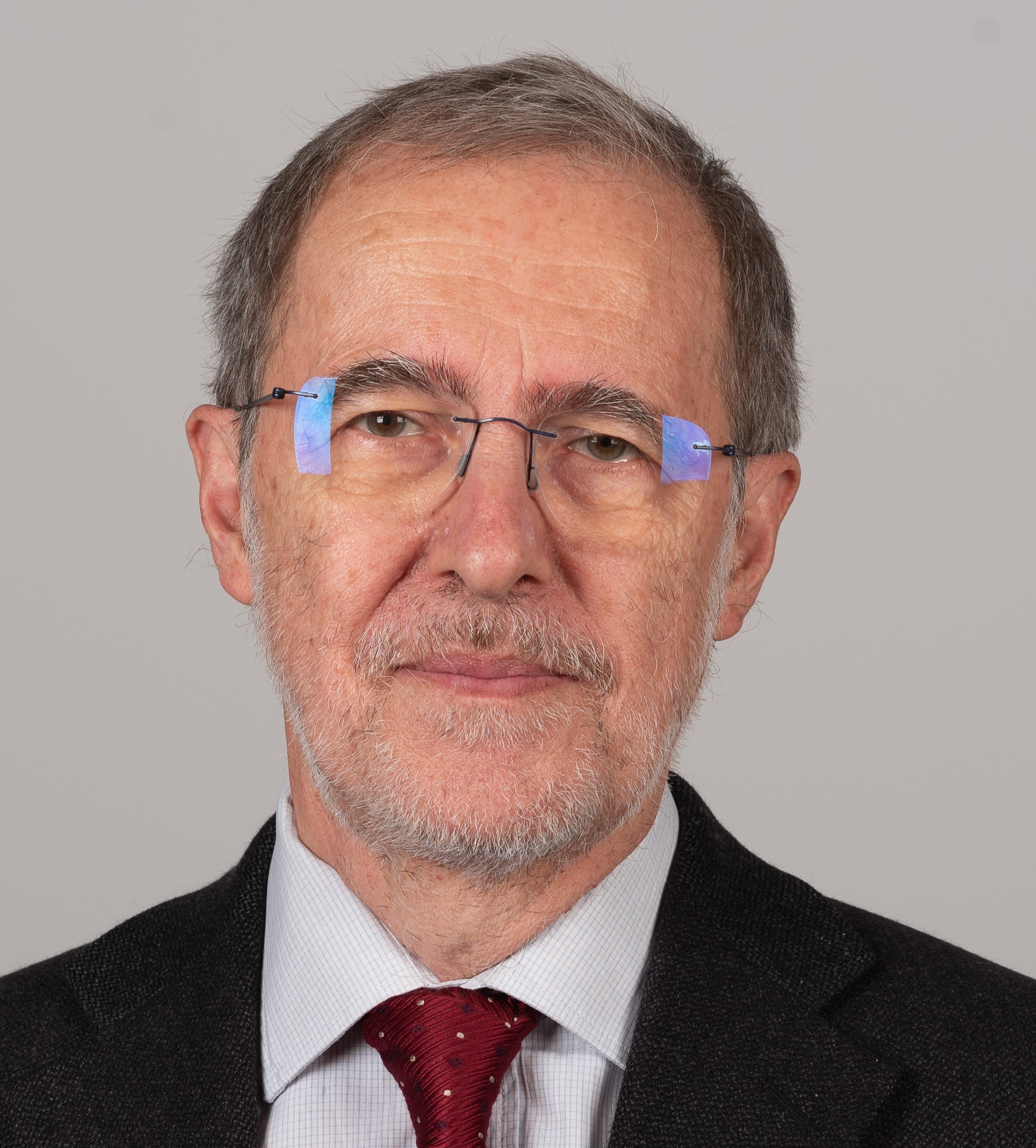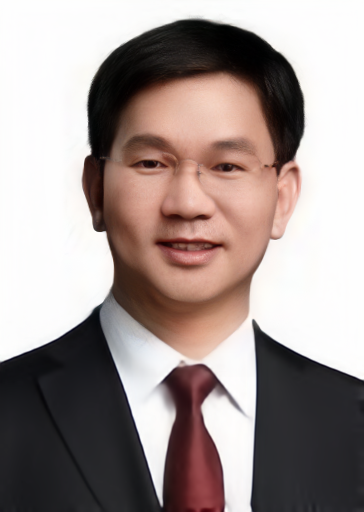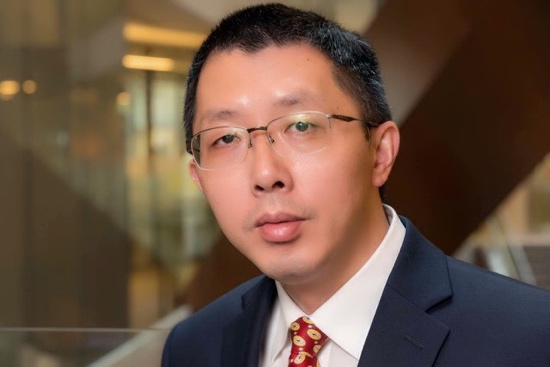|
NaNA2024 Keynote 1: |

|
Speaker:
Prof. Achille Pattavina
Title:
The Data Centers from Cloudscale Networking to Hyperscale Computing: the AI Race
Affiliation:
Politecnico di Milano, Italy
|
| Abstract:Cloud computing has become a reality by the power of distributed data centers (DCs); the bandwidth
capacity in these DCs has grown steadily over the past decade driven by new developments in the silicon
photonics industry. Progresses achieved in particular in the design and development of optical transmitters
and receivers have made it possible an unprecedented growth of the overall DC bandwidth capacity, both
intra-DC in a single site and inter-DC on a regional scale. Interest in Artificial Intelligence and Machine
Learning (AI/ML) applications has exploded in the past few years and their widespread usage promise to
revolutionize the entire society. AI/ML requires a massive usage of processing capacity, thus pushing for
the design of new processors with accelerated capabilities (GPU/TPU) aggregated in clusters of
ten/hundred thousands of GPUs/TPUs. The limiting factors in these clusters is the network interconnecting
the GPUs/TPUs that has pushed the search for innovative solutions for the DC overall system architecture.
The unprecedented power requirements of the hyperscale processing capacity has stressed the importance
of the power efficiency in the interconnection network design inside the DC and between DCs. Innovative
interconnection solutions relying on copper and/or fibers are selected carefully based on their cost, power,
density requirements and reach capability.
|
Short bio:
Prof. Achille Pattavina received the Dr. Eng. degree in Electronic Engineering from University La Sapienza of Rome
(Italy) in 1977. He was with the same University until 1991, when he moved to “Politecnico di Milano”, Milano
(Italy), where he has been Full Professor since 1995. He has been author/co-author of more than 300 papers
in the area of communications networks published in leading international journals/conferences and of three
books: Switching Theory, Architectures and Performance in Broadband ATM Networks (New York: Wiley,
1998), Communication Networks (McGraw-Hill, 2nd ed., 2007, in Italian), Internet and Networks, third
edition (Pearson, 2022, in Italian), Internet and Computer Networks (2020). He has been Editor for Switching
Architecture Performance of the Transactions on Communications (IEEE) from 1994 to 2011, Editor for
Optical Switching and Networking (Elsevier) from 2004 to 2015, and also Editor-in-Chief of the European
Transactions on Telecommunications (AEIT) from 2001 to 2010. He has been coordinator of national projects
(PRIN projects) and local coordinator of international research activities, including European Union funded
projects in the FP7 and H2020 framework programs. His current research interests are in the areas of
Software Defined Networking, cloud computing and data centers, green ICT, optical networks, switching
theory.
|
NaNA2024 Keynote 2: |

|
Speaker:
Prof. Jian Weng
Title:
Building Trust in Collaborative Machine Learning: Privacy and Security
Affiliation:
Jinan University, China
|
| Abstract:Many organizations are interested in collaborating to train machine learning models using their combined data. However, starting such collaborations is challenging due to privacy concerns, distrustful computing environments, and a lack of incentives. In this talk, we will present our efforts to address these issues by designing advanced cryptographic schemes for various stages of machine learning. We begin by introducing a secure collaborative learning framework that features an incentive-compatible mechanism, customized encryption for protecting model parameters, and an accountability scheme for auditing computational correctness. Next, we focus on the post-training stage, enabling trustworthy model sharing and truthful ensemble predictions in a distrustful multi-stakeholder environment. Furthermore, with the rise of cloud-based inference services, we devise a secure two-party model inference protocol with fast verifiability, and a zero-knowledge proof scheme for batch convolution operations. These techniques ensure the accuracy and integrity of predictions against potentially malicious cloud servers. Additionally, to address data privacy concerns that may lead to data deletion requests, we provide an auditing method to verify whether data has been removed from a trained model in a distrustful cloud environment.
|
Short bio:
Prof. Jian Weng is a professor and the vice president of Jinan University. He received Ph.D. degree at Shanghai Jiao Tong University in 2008. His research areas include public key cryptography, machine learning security, blockchain, etc. He has published more than 150 papers in international conferences and journals, such as CRYPTO, EUROCRYPT, ASIACRYPT, IEEE TPAMI, IEEE TDSC, IEEE TIFS, which have been cited more than 14,000 times. He has held prominent roles in various conferences, serving as general chair of ASIACRYPT 2023, as well as serving on the Program Committees of over 80 international conferences. He received the Ding Ying Science and Technology award from Guangdong Province in 2023, the first prize of Guangdong Science and Technology Progress award in 2023, and the first prize of Guangdong Natural Science award in 2021. He was granted the Young Scientists Fund of the National Natural Science Foundation of China in 2018.
|
NaNA2024 Keynote 3: |

|
Speaker:
Prof. Guoqiang Mao
Title:
Road-vehicle Collaboration - on the way to Smart Transportation and Autonomous Driving
Affiliation:
Xidian University, China
|
| Abstract:Road-vehicle collaboration and smart road technologies are hot topics attracting significant research interest and industry investment. In this talk, we first introduce our work on intelligent transportation systems and vehicular networks, and then review the historical development of roads and vehicles. From this review, we try to argue the view that there is strong cause-effect relation between vehicles and roads. Vehicles represent cause and demand; roads represent the effect and means to meet the demand. Therefore, so-called road-vehicle collaboration is simply a reflection of this causal relationship, and that the development of roads must suit the current vehicular technology, NOT predating it. Then, we present our plausible view about the phased and spiral evolution of smart roads and connected and autonomous vehicles (CAVs). A particular focus is on the development of an Internet of Things (IoT)-based system for smart roads to enable construction of a digital twin of the traffic and road system and various applications that can be built on that basis to improve the traffic safety and efficiency of current transportation systems, and the evolution of the IoT system to support the future mass deployment of CAVs.
|
Short bio:
Prof. Guoqiang Mao is a Leading Professor, Founding Director of the Research Institute of Smart Transportation, and Vice-Director of the ISN State Key Lab at Xidian University. Before that he was with University of Technology Sydney and the University of Sydney. He has published ~ 300 papers in international conferences and journals that have been cited more than 14,000 times. His H-index is 55 and is in the list of Top 2% most-cited Scientists Worldwide 2022 by Stanford University. He serves as a Vice-Director of Smart Transportation Information Engineering Society, Chinese Institute of Electronics (2022-), and was a co-chair IEEE ITS Technical Committee on Communication Networks (2014-2017). He is an editor of the IEEE Transactions on Intelligent Transportation Systems (since 2018), IEEE Transactions on Wireless Communications (2014-2019), IEEE Transactions on Vehicular Technology (2010-2020) and received “Top Editor” award for outstanding contributions to the IEEE Transactions on Vehicular Technology in 2011, 2014 and 2015. He has served as a chair, co-chair and TPC member in a number of international conferences. His research interest includes intelligent transport systems, Internet of Things, wireless localization techniques, wireless sensor networks, and applied graph theory and its applications in telecommunications. He is a Fellow of IEEE, AAIA and IET and a National Distinguished Overseas Expert.
|
|
2018-2021
All Rights Rreserved.
|
| |